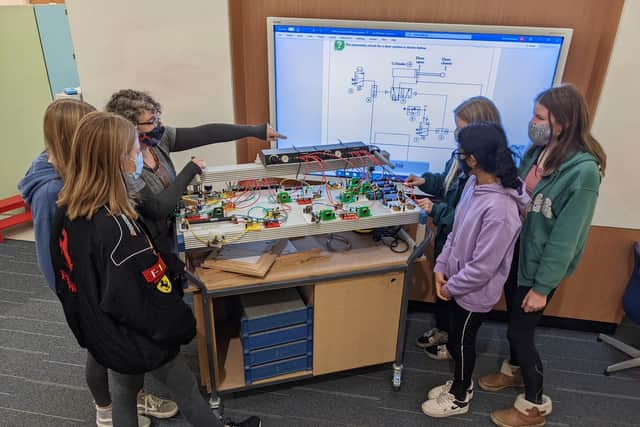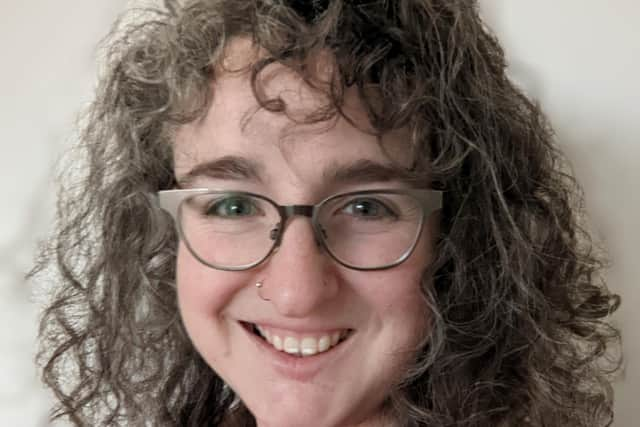The misconception that engineering is only for boys starts very early on in a girl’s life - Esme Anderson
In terms of a solution, all such reports point to a need to inspire more young people to pursue careers within STEM and equip them with the skills to succeed. Part of the challenge lies in misconceptions around the “type” of person who can become an engineer or scientist. Indeed, with women occupying just 24 per cent of the core STEM roles, changing perceptions and encouraging more girls into engineering is vital to ensure there is a diverse workforce of engineering talent.
Anyone can be an engineer
The history books have plenty of reference to incredible women in engineering, but sadly this is not taught widely enough in schools. When it rains and you switch on your windscreen wiper, you might not know that we have engineer Mary Anderson to thank for this invention. If you are reading this article online you may be using WiFi, thanks to Hedy Lamar. It was her invention of frequency-hopping technology in 1941 that was a precursor to secure WiFi.


Advertisement
Hide AdAdvertisement
Hide AdWe can start to challenge misconceptions by introducing children to a diverse range of engineering role models in the classroom, but this change in perceptions must come from parents too. Research carried out by educational charity, The Smallpeice Trust, revealed many parents see engineering as “too academic” for their child, while some parents of daughters expressed a concern their child would be uncomfortable working in a “male-dominated environment”. Of these parents, 46 per cent pointed to a lack of female engineering role models in the media and education.
Building aspirations in engineering
I knew I wanted to go into engineering when I went on an international Aerospace Summer School residential trip at school, which gave me the opportunity to take part in all sorts of engineering related challenges. I got to work with students from schools across the world, from South Africa to Germany. I remember we had to create a device to protect an egg dropped from height. Another challenge I recall was creating a bridge from straws to support the weight of a brick; we also had to cost it out per centimetre. Back then, coming from an all-girls school, I was so happy to win the challenge for creating the strongest bridge at the lowest cost, because sadly there were so few girls in engineering.
My school recommended I apply for an Arkwright Engineering Scholarship, run by The Smallpeice Trust and designed to give young people, especially girls, an opportunity to gain hands-on experience and mentorship across all engineering disciplines. From building homes and producing pharmaceuticals, to cleaning our air and improving sustainability, the sector opportunities are so broad. To develop, compete and thrive in an ever-changing industry, new skills are essential, and a successful scholarship scheme is central to that.


Throughout the scholarship, I received unique industry insights that otherwise would have been difficult to access. From co-piloting a plane and helicopter at the Aerospace Summer School, to exhibiting my electrical project work at the Institute of Electrical Engineers (IEE) in London. I also worked with a mentor from the Radio Communications Foundation, which was an amazing career opportunity. These diverse experiences led me to discover my real passion: mechanical engineering.
Supporting girls with engineering knowledge and role models
The scholarship kick-started my pathway into engineering, leading me to obtain a degree at Edinburgh University and subsequently study for a PhD, both in mechanical engineering. Whilst at university I got involved in an outreach programme; working with high school students to help them with engineering-related problem solving activities. Each year, I was delighted to see more girls deciding to pursue engineering-related careers.
At this point, I discovered my passion for teaching. Rather than change the national statistics of women in engineering one by one, I realised that if I could have a 30-year teaching career I could help thousands of students to consider a career in engineering; a far better ratio than me doing it alone. Thankfully James Gillespie’s High School where I teach is one of few schools offering engineering as a subject and is proud to celebrate the diversity of all our students and their talents. In my first year of teaching, there was only one girl on the course but this year we have six classes with about twelve girls across them. The shift is still too slow but it is certainly improving.
To complement the curriculum lessons, we set up girls-only workshop sessions where students could develop their practical skills in a space without worrying about their performance amongst the class dynamics. Every year we also take part in the F1® in Schools competition and this year we have more girls than ever taking part; nearly 30 per cent.
The misconception that engineering is only for boys starts very early on in a girl’s life, which is why it is so important that teachers at all levels give young girls role models and experiences to fuel their passion for STEM; thankfully we’re starting to see things change.
Advertisement
Hide AdAdvertisement
Hide AdEsme Anderson, Teacher of Design and Technology at James Gillespie’s High School, Edinburgh
A message from the Editor:
Thank you for reading this article. We're more reliant on your support than ever as the shift in consumer habits brought about by coronavirus impacts our advertisers.
If you haven't already, please consider supporting our trusted, fact-checked journalism by taking out a digital subscription.
Comments
Want to join the conversation? Please or to comment on this article.